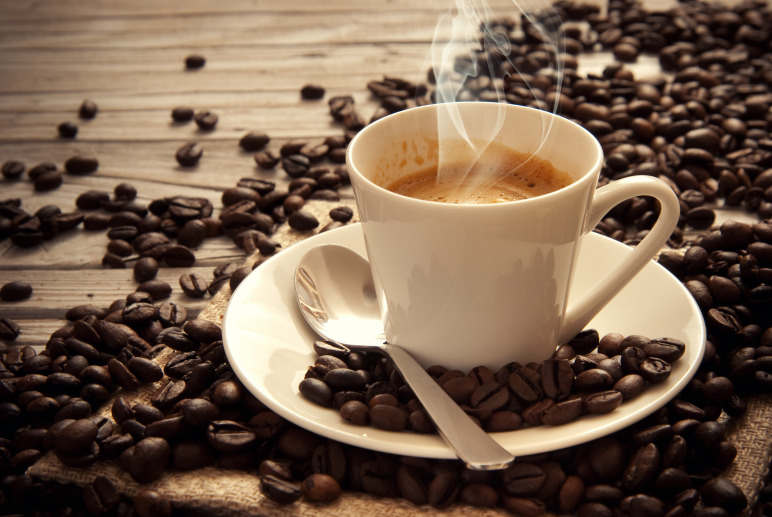Bipolar disorder is diagnosed when a person’s mood shifts unexpectedly. This brain disorder also pertains to energy and activity level, and can severely impact a person’s ability to complete daily tasks. There are four types of bipolar disorder; the specifications typically depend on the type of mood that is being exaggerated. Manic episodes are the “highs” while depressive ones are the “lows”. While there are different therapies and medications that people with bipolar disorder can pursue, there is something to be said about more natural remedies.
Food & Nutrition Diet (Meal Plan) for Bipolar Disorder (Manic Depression)
#1 Recommended Breakfast Diet for Bipolar Disorder

The general consensus among the doctor community is that a bipolar disorder diet should include lots of fruits and vegetables. Not only that, but patients should take another look at their fat intake. It turns out that the type of fat people consume can play a role in their symptoms. It’s all about heart-healthy fats. For breakfast, this could include nuts and seeds or avocado. A veggie omelet with avocado is low on carbohydrates but high on protein, fiber, and healthy fats. It’s a great way to start the day and will help to stabilize energy levels.
#2 Recommended Lunch Diet for Bipolar Disorder

Eating during the midday hours can keep blood sugar stable, which is good for anyone. Foods that take longer to digest are less likely to give people a burst of energy followed by a crash. This means filling up on whole grains and fiber-filled foods. Therefore, a typical lunch might be a side salad with whole-wheat pasta or maybe roasted veggies and chickpeas drizzled in canola, flaxseed, or olive oil. This combines healthy fats, plant-based protein, and a bunch of nutrient-dense veggies. Protein is important because it helps to prevent crashes; it keeps people satiated. Some options to consider include low-fat dairy products, tofu, beans, lean meats, and fish.
#3 Recommended Dinner Diet for Bipolar Disorder

Omega-3 fatty acids are known for their heart benefits but many doctors are pointing to the positive effects that they have on the brain too. Fatty fish such as salmon, tuna, mackerel, and trout contain the omega-3s that can boost brain health. DHA and EPA may positively affect brain behavior so a lot of doctors recommend that their bipolar patients eat fish a few times a week. There are even vegetables that contain these healthy fats, such as collard greens, spinach, and winter squash. A variety of veggies should always be present at dinner. Patients should try to get a rainbow on their plates to take advantage of all the nutrients.
#4 Recommended Snack Diet for Bipolar Disorder

Veggies and hummus is one of the best snacks because it satisfies that crunchy craving while supplying loads of flavor and some healthy fats. It is a nourishing snack that will keep people satiated until their next meal. Yogurt is another easy snack and people can mix in anything they’d like. For example, nuts, granola, and fruit go well with yogurt. They just need to be sure to get a variety that does not include lots of added sugars. Greek yogurt provides ample protein and it has probiotics that contribute to a healthy gut. That in itself can improve mood.
#5 Recommended Drinks for Bipolar Disorder

While alcohol and caffeine aren’t good choices, an herbal tea such as green tea can be a good substitute. Herbal teas are soothing and there are so many options to choose from. Some relaxing favorites include chamomile, passionflower, catnip, motherwort, and valerian. Getting enough water is crucial to keeping energy levels up throughout the day.
#6 Recommended Herbs for Bipolar Disorder

Some naturopaths and doctors believe that St. John’s wort can help to treat moderate depressive symptoms. People should take it in capsule or tablet form only. Saffron is a unique herb that has been used in traditional medicine to treat depressive symptoms. It’s used in a lot of Indian dishes. Gingko biloba improves blood flow to the brain so it can be a decent herbal supplement. Ashwagandha and ginseng are also believed to support bipolar disorder treatment.
#7 Recommended Fruits for Bipolar Disorder

Fruits can be a great way to get some natural sweetness in one’s diet. However, people with bipolar disorder need to be careful with grapefruit. This citrus fruit tends to interact with many prescription drugs for bipolar disorder. The furanocoumarins interfere with the medications, causing higher concentrations than normal in patients’ blood. In terms of the best fruit for people with this condition, berries rank high. They contain lots of antioxidants that are good for brain, heart, and gut health. Plus, they mix well into a variety of breakfast recipes, desserts, and snacks. Bananas improve serotonin, which might help some patients.
#8 Recommended Vitamin/s for Bipolar Disorder

B vitamins (B-1, B-6, B-12) are energizing and immunity-building. Some bipolar disorder patients even get regular B-12 shots to help alleviate their symptoms. Vitamin B-1 (Thiamine) helps with night terrors, anxiety, and circulation problems. Vitamin B-6 (Pyridoxine) is great for irritability. Vitamin B-12 is essential for turning food into energy. In addition, Vitamin C boosts immunity and also helps with iron absorption so it has the potential to help increase energy levels. Vitamin D deficiency can lead to sleep issues, depression, and tiredness so adequate amounts of this vitamin are crucial.
#9 Recommended Mineral/s for Bipolar Disorder

As mentioned earlier, omega-3 fatty acids can do great things for brain health. If eating fish isn’t a possibility, people can take fish oil supplements. The American Heart Association recommends 0.5 to 1.8 grams per day. Canola oil, flaxseeds, and walnuts also contain these fatty acids. Selenium is necessary for healthy brain function. Some foods that include it are seafood, steak, turkey, and Brazil nuts. Magnesium has mood-stabilizing properties and can be found in avocados, nuts, legumes, bananas, leafy greens, and dark chocolate.
#10 Discouraged Foods for Bipolar Disorder

The typical American diet is linked to a variety of diseases and illnesses. Having another serious medical condition will only make bipolar disorder worse. It’s best to stay away from an overload of saturated fats, processed food, and excess sugar. Too much caffeine or salt can spike blood pressure and that can make symptoms worse.
- READ MORE




